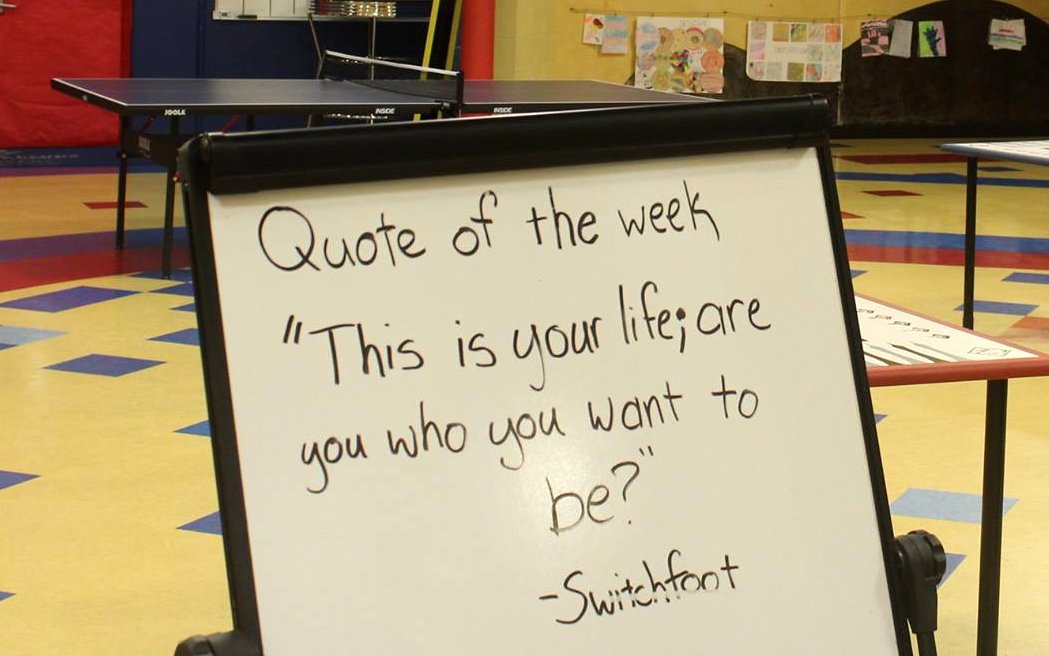By Alanna O’Rourke | gargoyle@flagler.edu
When it comes to helping young people, Stephanie Postell isn’t looking for some newfangled, unproven approach.
“The thing that makes us different is that we haven’t tried to reinvent the wheel,” said Postell. “We’re perfecting the wheel. We’re perfecting it, we’re utilizing it and we’re saying that you can go into any community in America and do this.”
She’s talking about helping kids achieve their goals and dreams, something the Boys & Girls Club has been doing around the country for more 150 years.

Stephanie Postell is unit director of the Boys & Girls Club in St. Augustine.
Postell is unit director of the Boys & Girls Club of Northeast Florida office in St. Augustine. She said she’s always wanted to be part of the organization.
“I’ve wanted to work for the Boys & Girls Club for as long as I could remember because we are a preventative program. We get kids before they get down that bad path, we can see them going and we can stop it,” said Postell.
One of five young people in America lives in poverty, Postell says, and will not graduate high school in four years. Boys & Girls Clubs across the United States are trying to help such children.
The organization’s priority is to inspire and enable all young people. Clubs achieve this goal through the five pillars: character and leadership, healthy lifestyle choices, education and academics, the arts and physical recreational sports and fitness.
 Paying attention to such principles helps keep children out of trouble, Postell says.
Paying attention to such principles helps keep children out of trouble, Postell says.
“When they put those kind of things into play, that’s when we were starting to see the differences in the community,” she said. “We have found that if you can keep the child in the Boys & Girls Club three days a week, that they will not become involved in the juvenile system until 18 years old and they will not be a teen parent.”
The St. Augustine club, located at 555 W. King Street, serves 135 families on a regular basis. That’s roughly 105 kids who come flying through the front door after school every day, ready to have fun and learn with their friends.
“We are centered in west St. Augustine because there are 5,000 families that live in a five-mile radius that live at or below the poverty line,” Postell says.
To qualify, all kids must do is sign the application.
“Most of our children are free or reduced lunch and the fee to go here is $10 a month, per child. All of our kids are on scholarship to go here. It costs $1,500 a month for a child to attend a Boys & Girls Club for us, but we charge $10 a month so $1,500 a year pays for their summer camp and everything else,” said Postell.
The Boys & Girls Club of America is not federally funded, which allows the organization to seek support throughout the community. In St. Johns County, 60 percent of funding comes from private donors in St. Augustine. The club also has community partnerships with such brands as Nike and Adidas.
“Without federal funding, you get the freedom to be what you’re able to be. You can have your own club culture,” said Postell.
Club culture is different in every Boys & Girls Club throughout the U.S. and that’s what makes each club rich with diversity and excitement.
“Our focus is finding the kids’ passions and letting their talents and interests really lead us in the direction that we need to go, programming wise. We hope that we can be showcasing at the end of the year with talent shows or art shows,” said Postell.
 Community is an essential component of the Boys and Girls Club. It’s the basis of the organization itself as well as the culture in St. Johns County. The club aspires to attract a bigger following through showcasing its talented kids, Postell says.
Community is an essential component of the Boys and Girls Club. It’s the basis of the organization itself as well as the culture in St. Johns County. The club aspires to attract a bigger following through showcasing its talented kids, Postell says.
“We want to develop the club. We finally got in on a track where I feel like we’re doing more than surviving. We need to be thriving,” she said.
The Boys and Girls Club provides kids with a backbone of strength and motivation to prepare them for the work world and life provided by self-sustainment. The program allows kids to direct their immense amount of energy into projects, schoolwork, any activity that excites them.
“We’re able to take the kids, build them up as adults and put them into the community to serve the community they came from and strengthen it,” said Postell.




Be the first to comment on "Club asks “Who do you want to be?”"